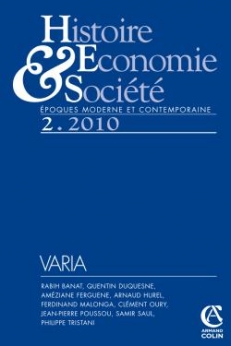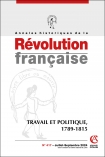
Histoire, économie & société (2/2010)
Pour acheter ce numéro, contactez-nous
Recevez les numéros de l'année en cours et accédez à l'intégralité des articles en ligne.
Du lendemain de la Seconde Guerre mondiale au début des années soixante-dix, Washington développe une stratégie pétrolière globale pour conforter son leadership sur le marché pétrolier international. Dans cette perspective, le contrôle des marchés pétroliers européens est un objectif majeur. Il ne peut être atteint que par le contrôle de la principale zone de production en dehors des États-Unis, le Moyen-Orient. Mais l’impérialisme pétrolier américain se heurte, en 1945, à l’Iraq Petroleum Company qui possède les droits d’exploration et d’exploitation sur la quasi-totalité de l’espace s’étendant de la Turquie à la péninsule Arabique. L’Iraq Petroleum Company devient ainsi « l’ennemi à abattre » pour les Américains avant que ceux-ci ne lui assignent le rôle, à son corps défendant, de poste avancé dans la défense des intérêts pétroliers et stratégiques des États-Unis au Moyen-Orient.
From just after the Second World War until the beginning of the 1970s, Washington developed a global oil strategy to strengthen its leadership on the international oil market. From this standpoint, control of the European oil markets was a major objective. It could be attained only by controlling the main production area outside the United States, the Middle East. But in 1945, American oil imperialism came up against the Iraq Petroleum Company, which held the rights to exploration and exploitation of most of the space from Turkey to the Arabian Peninsula. Thus that company became « the enemy to be felled » for the Americans before they assigned it the role, reluctantly, of an outpost to help defend the US oil and strategic interests in the Middle East.

